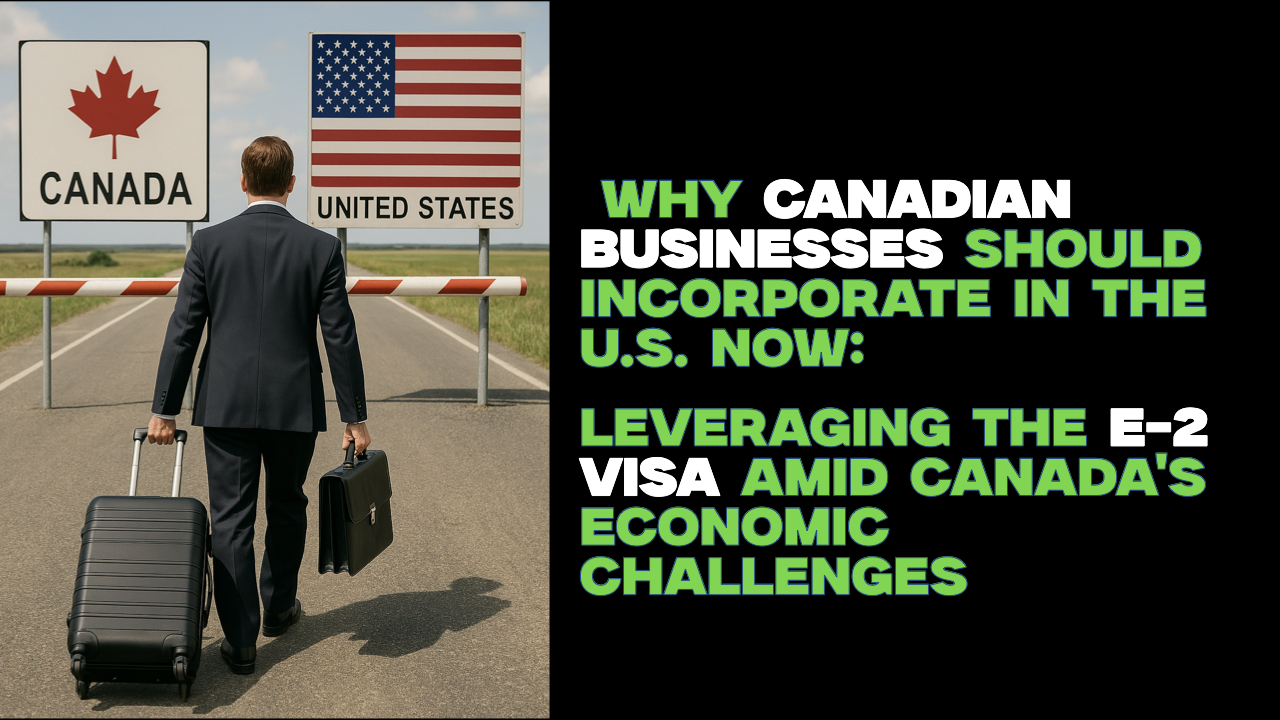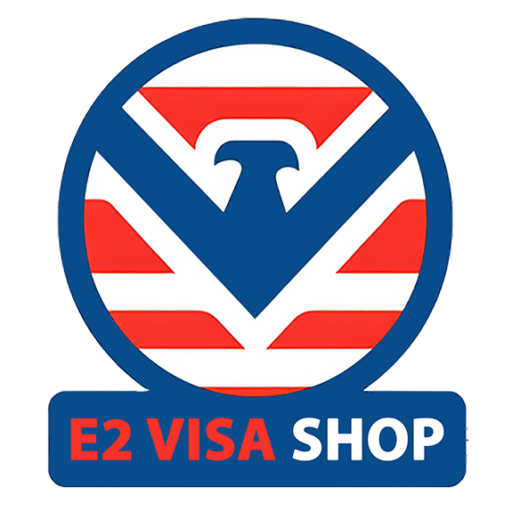
In 2025, Canadian entrepreneurs face a complex landscape marked by economic uncertainties, rising operational costs, and shifting trade dynamics. These challenges have prompted many to explore opportunities beyond national borders. One compelling avenue is incorporating in the United States and utilizing the E-2 Treaty Investor Visa to establish a business presence. Here’s why this strategy is increasingly attractive:
Economic Pressures in Canada
Canadian businesses are grappling with several headwinds:
- Sluggish Economic Growth: The Canadian economy is projected to grow by only 1.5% in 2025, marking the third consecutive year of below-potential growth. This stagnation is causing concern among small and medium-sized enterprises (SMEs).
- Rising Operational Costs: Inflation and increased payroll expenses are squeezing profit margins, making it harder for businesses to maintain competitiveness.
- Trade Tensions: The imposition of a 25% tariff on Canadian goods by the U.S. in early 2025 has disrupted longstanding trade relationships, compelling businesses to reassess their market strategies.
Advantages of U.S. Incorporation
Incorporating in the U.S. offers several benefits:
- Access to a Larger Market: The U.S. boasts one of the world’s largest consumer markets, providing Canadian businesses with opportunities for significant revenue growth.
- Investor Appeal: U.S. incorporation can make businesses more attractive to American investors, who often prefer dealing with domestic entities due to tax and regulatory considerations.
- Simplified Banking and Operations: Establishing a U.S. entity facilitates easier access to American banking services and streamlines transactions with U.S. partners.
- Compliance with ‘Buy America’ Provisions: Having a U.S.-based company can help businesses meet requirements for government contracts that mandate a certain percentage of U.S. content.
- LLC vs. Corporation – Choosing the Right Structure:
- LLC (Limited Liability Company): Offers flexibility in management and taxation. It’s ideal for small to medium businesses looking for pass-through taxation, where profits are reported on the owner’s personal tax return. LLCs are generally easier and less expensive to maintain.
- Corporation (C-Corp or S-Corp): Suitable for businesses seeking outside investment, offering structured governance and stock issuance. C-Corps are taxed separately, while S-Corps offer pass-through taxation (subject to eligibility). Corporations may be more attractive to venture capital and institutional investors.
- Choosing between an LLC and a Corporation depends on business goals, funding needs, and long-term growth plans.
Leveraging the E-2 Visa
The E-2 Treaty Investor Visa provides a pathway for Canadian entrepreneurs to live and work in the U.S. while managing their business:
- Eligibility: Canadian citizens can apply for the E-2 visa by making a substantial investment in a U.S. business. While there’s no fixed minimum, initial investments typically range from $40,000 to $100,000, depending on the nature of the business.
- Family Inclusion: The visa allows spouses to work in the U.S. and children under 21 to attend school, facilitating family relocation.
- Renewability: The E-2 visa is valid for up to five years and can be renewed indefinitely, provided the business continues to meet the visa requirements.
- Operational Control: Applicants must demonstrate that they will develop and direct the enterprise, ensuring active involvement in the business’s success.
Strategic Considerations
Before proceeding, businesses should:
- Develop a Robust Business Plan: A comprehensive plan outlining the business model, market analysis, and financial projections is crucial for both visa approval and operational success.
- Seek Legal and Business Advice: Consulting with immigration attorneys and business advisors can help navigate the complexities of U.S. incorporation and visa applications.
- Evaluate Long-Term Goals: Consider how U.S. expansion aligns with the company’s strategic objectives and whether it offers a sustainable path for growth.
Conclusion
Given the current economic and trade challenges in Canada, incorporating in the U.S. and utilizing the E-2 visa presents a viable strategy for Canadian businesses seeking growth and stability. This approach not only opens access to a vast market but also provides operational advantages that can be pivotal in navigating the uncertainties of 2025 and beyond.
